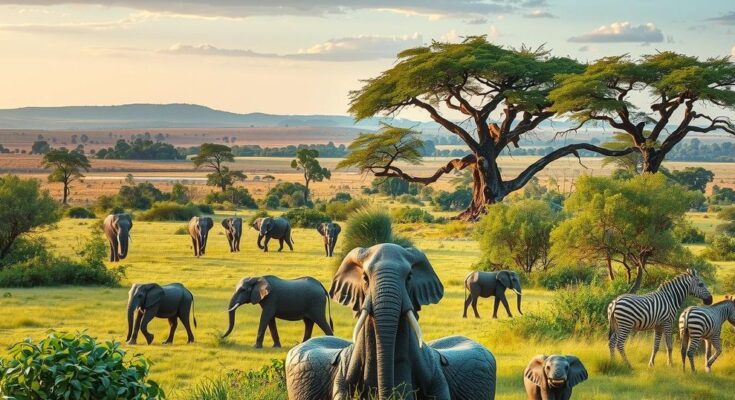Botswana’s hunting revenues have surged to $4 million, the highest since the 2019 ban lift. Despite this success, growing opposition from Western nations regarding wildlife trophy imports threatens local community benefits. Minister Wynter Mmolotsi highlighted the importance of sustainable wildlife management practices.
Botswana has experienced a significant surge in hunting revenues, collecting $4 million from the sale of hunting licenses, marking the highest earnings since the hunting ban was lifted in 2019. The hunting season concluded in November amid increasing opposition from several European nations, advocating for a ban on importing African wildlife trophies. Annually, Botswana issues approximately 400 licenses for elephants, with a majority acquired by foreign hunters.
Wynter Mmolotsi, the Minister of Environment and Tourism, informed Parliament of the substantial income generated through the sale of elephant hunting licenses in local wildlife areas. He stated, “In order to manage the wildlife population, the country is implementing a combination of both consumptive and nonconsumptive utilization of our wildlife resources to derive optimum economic benefit.” For the upcoming 2024 hunting season, it was reported that community quotas produced 42,863,423 pulas, while 15,633,950 pulas were generated from special elephant quota sales to support conservation efforts.
In 2023, Botswana’s earnings from hunting licenses reached $2.7 million, yet Minister Mmolotsi acknowledged the rising opposition from Western countries, including Canada and Belgium, which have enacted bans on trophy importation. He remarked, “The country is facing opposition from animal rights organizations to our policy of sustainable wildlife utilization.” The ministry, in collaboration with the hunting industry, is working to address this growing opposition through discussions in the United Kingdom and Germany.
Siyoka Simasiku, director of the Ngamiland Council of Non-Governmental Organisations, emphasized the adverse impact of the U.K. restrictions on local communities, stating that the U.K. is an influential economic power whose ban could lead other nations to follow suit. He cautioned that this could diminish the existing market for hunting in community concessions.
Conversely, Oaitse Nawa from the Elephant Protection Society advocates for ending the hunts, asserting that the revenue generated does not significantly benefit local populations. He argued for more thorough research on the negative effects of hunting, stating, “They are giving us figures of the money that they made from hunting, but also let us look at the compensation that they give the people.” Botswana, home to the largest elephant population, exceeding 130,000, has seen a rise in human-wildlife conflicts and crop destruction due to elephant activity.
In conclusion, Botswana’s hunting industry has notably revived since the lifting of the hunting ban, yielding substantial revenues of $4 million in recent sales. Nevertheless, this success faces mounting opposition, particularly from Western countries advocating for trophy import bans, which may threaten community benefits derived from hunting. The ongoing debate highlights the need for a balanced approach between wildlife conservation and economic empowerment for local communities, amidst varying perspectives on the impacts of hunting practices.
Original Source: www.voanews.com




